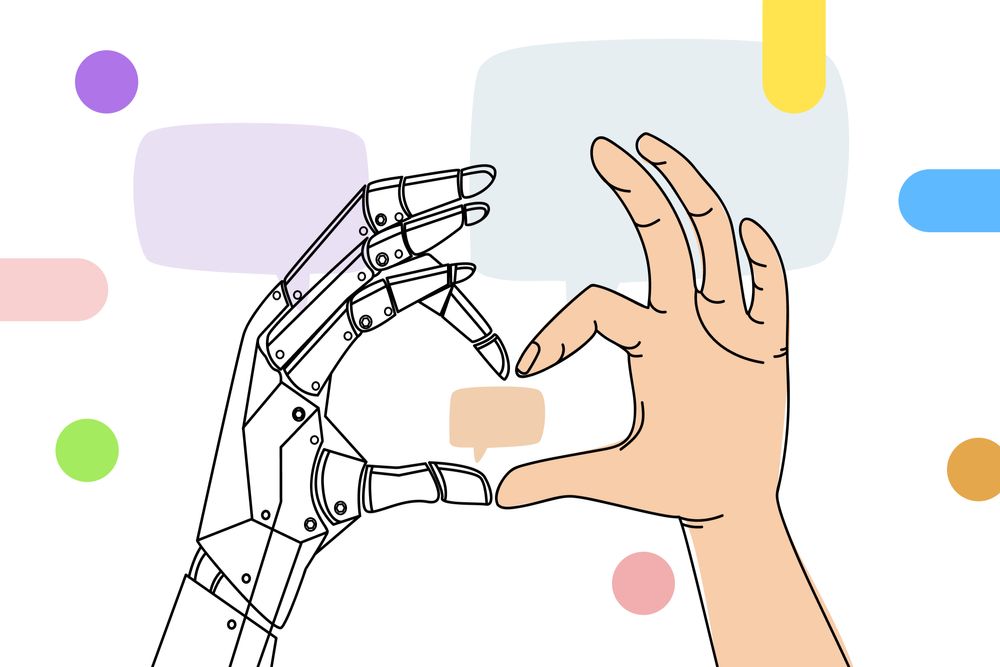Ah, performance reviews! There’s no way to escape them - kind of like taxes or that one coworker who always microwaves fish in the office kitchen 🐟
Regardless of whether they're a mandate from HR or a genuine attempt to uplift your development team, these evaluations play an integral role in both the professional growth of software engineers and the overarching success of the company.
The transition to remote work during the pandemic and economic shifts have necessitated a reevaluation of how engineering managers approach these reviews. Adapting hasn’t been a walk in the park, but perfecting this process ensures streamlined workflows and team alignment. 📄
What Exactly Are Performance Reviews?
These reviews act as a mirror, reflecting past accomplishments while paving the path for future goals and identifying growth areas. While they're essential, it's best to view them as developmental dialogues to discuss growth or wellbeing rather than strict evaluations. The escalating complexity of software projects, combined with limited resources, can make orchestrating effective performance reviews a challenge for budding engineering managers. Enter ChatGPT, your digital assistant for refining performance assessments and 1-on-1 software development discussions.
ChatGPT Unveiled
ChatGPT, developed by OpenAI, is an advanced language model that excels in natural language processing, allowing it to engage in human-like conversations. Through its profound understanding of language, ChatGPT can assist software engineering managers in conducting performance evaluations more efficiently, potentially slashing the review time by 30-40%.
Here's how ChatGPT can augment a software engineering manager’s toolkit:
How Can ChatGPT Help Engineering Managers Conduct Performance Reviews?
1. Analyzing Work Output with ChatGPT
While we've always advised against solely relying on individual metrics for judgments, these metrics do set the stage for broader discussions about work outputs. What we do encourage is for engineering managers to use metrics to establish context and start conversations surrounding work output.
That being said, ChatGPT can certainly take heaps of time off your hands as it can analyze the number of commits, the size of pull requests, and other metrics that are commonly used to assess software engineer performance. With the heavy lifting already done for you, engineering managers could then focus on identifying patterns and trends when you’re building out that app feature or implementing some new changes.
Secondly, after providing engineering managers with such performance data, ChatGPT can give insights and personalized recommendations as to where your engineers should focus their efforts. For example, ChatGPT could tell your engineers to make frequent yet smaller commits instead of making big commits once a week. It could also suggest other action items or a direction to take to improve production. These recommendations, of course, can be tailored to your overall team goals or to your engineers’ specific roles, skills, and professional development, making them more effective at their job.
2. ChatGPT Can Help You Analyze Feedback
Collecting Feedback: Developers ⏩ Manager
With the help of natural language processing, ChatGPT can analyze the feedback provided to the software engineering manager from his or her developers. This data can be gathered from individual 1-on-1 meetings or through pulse surveys. Engineering managers can also use ChatGPT to gather feedback from code reviews in GitHub. The model can identify common themes and patterns, and provide insights that might not be immediately apparent to the engineering manager, especially when working remotely.
Collecting Feedback: Developer 🔃 Developer
ChatGPT can also assess the language and tone used among developers within their teams. After training ChatGPT, you can get it to collect data on the company's communication channels such as Slack, or on GitHub, where it can analyze code review feedback left by other developers. The model can learn common language patterns and sentiments expressed by team members, but be sure to desensitize it to any bad language or “unique expressions” used in the software development world 😂
With the help of ChatGPT, you’d quickly pick up on which software engineers work well with others, communicate their needs, and collaborate efficiently. Conversely, it can also flag those who may be struggling, perhaps due to communication issues, lack of engagement, or difficulty in tackling the task at hand. Just a word of caution: don’t use ChatGPT as a tool of repression 🔨 but a tool of empowerment 🦾
Giving Feedback: Manager ⏩ Developers
Now, moving in the opposite direction and with a broad dataset in your hands, ChatGPT can help engineering managers give feedback to their developers.
One of the biggest challenges in conducting performance reviews is framing your feedback in a way that is honest, sensitive, constructive, and forward-focused. This is important because we as humans often fear receiving feedback, especially if it’s negative. Developers, like many other employees, sometimes get defensive or reactive, and this could really affect the performance review. I could only imagine the ripple effect a poor performance review can have on dev teams - a drop in morale and the possibility of the engineers losing respect for the engineering manager.
But remember, there are non-verbal aspects to giving feedback that ChatGPT will not do such a good job in. After all, it’s not human!
The nonverbal cues that ChatGPT can’t help you with are the way you listen, your facial expressions, movements, and reactions. These cues show whether you care, are truthful, and actively listening to the person you are communicating with. When your nonverbal signals are consistent with your words, they can foster trust, understanding, and good rapport. However, if there is a mismatch, it can create unease, mistrust, and misunderstandings.
3. ChatGPT Can Set Your Next Meeting’s Agenda
More than once throughout my software development career I've left a meeting room thinking, “What a waste of time!” Meetings without a specific focus often turn into casual chats about - nothing! Believe it or not, with all the data it can sift through, ChatGPT may very well be your assistant who comes up with the perfect meeting agenda based on everything that has happened since the last meeting.
ChatGPT can:
- Create a list of topics to be covered in the meeting. These topics should be relevant to the meeting's purpose and should help achieve the meeting's goals.
- Prioritize the topics in order of importance. This will help ensure that the most important topics are covered first, and that the meeting stays on track.
- Assign time limits for each topic. This will help keep the meeting running on schedule, and prevent any one topic from dominating the discussion.
- Determine who will lead each discussion topic. This will help ensure that the discussion stays focused, and that everyone has a chance to share their input.
- Share the meeting agenda with all participants prior to the meeting. This will give everyone a chance to prepare and come ready to contribute to the meeting's success.
4. Monitoring Your Developers' Wellbeing with ChatGPT
In today's fast-paced world, employee wellbeing has become tantamount to company success. Trust me, in IT, I’d even say its importance has skyrocketed in the last few years. All my startup buddies are looking for ways to roll out wellbeing programs that suit their needs and budgets.
At HAY, we’ve been advocating developer wellbeing for quite some time now, so much so that we decided to build a solution that helps engineering managers manage their developers’ wellbeing.
It’s high time engineering managers realize the importance of supporting their developers' mental health and wellbeing. It’s not only realizing this but finding a solution when faced with high turnover, burnout, low engagement, and an overall feeling of stagnation. But with developers working remotely, how can engineering managers monitor and address wellbeing?
One of the most common ways is through surveys and feedback forms. For instance, ChatGPT can analyze responses to questions related to stress levels, workload, job satisfaction, work-life balance, and mental health concerns. This information can help engineering managers take appropriate actions to address them. It’s also a great way to set some time aside and to really find out how your engineers are doing. Through one-on-one meetings, this would be the perfect way to show some compassion and help your engineers not only be better people, but better coders.
5. ChatGPT Can Prepare You for Reviews and Help You Check Up on Your Developers’ Progress
According to our research, around 25% to 45% of an engineering manager’s work week is spent preparing for performance reviews and 1:1 meetings. ChatGPT can help you cut down that time so you can spend it doing other important things. ChatGPT, for example, can provide a list of questions to ask during the review, ensuring that engineering managers cover all necessary areas. It can also provide reminders of past discussions and goals, so that engineering managers have all the necessary information to provide accurate and comprehensive feedback.
Another challenge in conducting performance reviews is keeping track of your developers’ progress over time. Many engineering managers are overwhelmed with balancing technical and managerial duties. When there’s a lack of downtime, ChatGPT can step in and track developer progress with summaries of past performance reviews and goals. This will help engineering managers see how developers have improved over time. ChatGPT can then provide regular updates on progress towards these goals, highlighting any areas where additional support or resources may be required.
Overall, ChatGPT is like a Swiss Army knife for software engineering managers! Admittedly, some may think it cuts too deep (intervenes too much), while others might think it’s too dull (very limited in what it can do).
Whether you like it or not, it’s a powerful tool that isn’t going anywhere. By tapping into the awesome power of machine learning, managers can gain a better understanding of software engineer performance and use this information to streamline development processes and level up team productivity. So, if you want to become the superhero of your software development team, grab ChatGPT and get ready to save the day! 🦸





